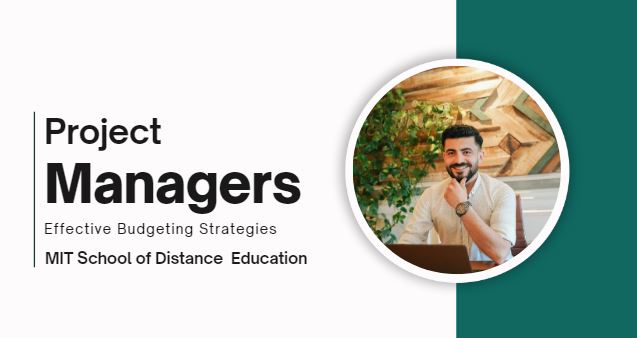
Budgeting is a core skill for project managers, allowing them to balance resources, minimize costs, and ensure projects are completed on time and within financial constraints. Effective budgeting is especially critical in today’s competitive business environment, where projects must meet tight budgets without sacrificing quality. For those looking to develop robust budgeting skills, enrolling in executive project management courses or a top PG diploma in project management can be invaluable. In this blog, we’ll cover essential budgeting strategies for project managers and discuss how MITSDE’s top PGDM project management courses can strengthen these skills.
1. Define and Understand the Project Scope
A clear understanding of the project scope is foundational to budgeting. Without a defined scope, budgeting becomes guesswork, leading to cost overruns. The project scope outlines the deliverables, timeline, and requirements, giving a framework for accurate cost estimation. Through MITSDE’s executive project management courses, project managers learn to manage scope and budgeting simultaneously, ensuring both align with client and stakeholder expectations.
2. Break Down the Project into Work Phases
A Work Breakdown Structure (WBS) is a budgeting best practice that organizes the project into phases and individual tasks, allowing for accurate cost allocation. The best PG diploma in project management programs, such as those offered by MITSDE, emphasize the importance of a WBS in resource planning and budget management. By categorizing tasks, project managers can allocate funds based on specific project needs.
3. Estimate Costs Accurately Using Proven Techniques
Cost estimation is a mix of art and science, requiring experience and methodical approaches. Key estimation techniques include analogous estimation, which uses data from similar projects, and bottom-up estimation, which builds costs from individual tasks. These techniques are part of the curriculum in MITSDE’s top PGDM project management courses, providing project managers with the knowledge needed to make realistic budget projections.
4. Identify and Mitigate Project Risks
Budgeting should always account for potential risks that could impact project costs. Risk management involves anticipating potential disruptions and setting aside contingency funds to cover unexpected expenses. In MITSDE’s top post graduate diploma in project management, students gain in-depth knowledge of risk assessment and contingency planning, helping project managers stay prepared for any financial uncertainties.
5. Continuously Monitor the Budget
Successful budgeting is dynamic; project managers must continuously track expenses and adjust as needed. Regular budget monitoring ensures costs remain aligned with the forecast, allowing for immediate action if discrepancies arise. With the tools and methodologies covered in MITSDE’s best post graduate diploma in project management, project managers gain the expertise to use real-time data and reporting tools for effective financial control.
6. Use Project Management Software for Budget Tracking
Digital tools play a crucial role in managing budgets efficiently. Software like MS Project, Trello, and others can track expenses, allocate resources, and provide budget forecasts in real-time. MITSDE’s executive project management courses incorporate practical training in these tools, enabling students to manage budgets effectively and collaborate seamlessly with teams and stakeholders.
7. Set Up a Contingency Fund
Even with a well-defined scope and budget, unplanned expenses can arise. Allocating a portion of the budget—typically 5-10%—for contingencies is a standard practice. The top PGDM project management courses at MITSDE offer insights into best practices for contingency planning, equipping project managers to handle unexpected costs without impacting overall project success.
8. Engage in Transparent Communication with Stakeholders
Open communication with stakeholders fosters trust and keeps them informed about the project’s budgetary health. Frequent updates about budget status and changes help manage expectations and prevent misunderstandings. MITSDE’s top PG diploma in project management programs focus on enhancing communication skills, allowing project managers to effectively relay financial updates to stakeholders.
9. Learn from Past Projects
Each completed project offers insights that can enhance future budgeting. By conducting post-mortem reviews, project managers can identify areas where budgets were exceeded and adapt lessons for future planning. MITSDE’s best PG diploma in project management emphasizes post-project analysis, teaching project managers to refine their budgeting techniques continually.
10. Invest in Professional Development
Staying updated on the latest budgeting practices and tools is essential. Professional courses like MITSDE’s top post graduate diploma in project management provide advanced training, covering budgeting, cost estimation, financial tracking, and risk mitigation. For project managers, these programs are instrumental in mastering budgeting strategies and driving project success.
Conclusion
Budgeting is one of the most critical skills in project management, requiring meticulous planning, monitoring, and adjustment. By implementing the strategies above, project managers can enhance their budgeting effectiveness, meeting both financial and project goals. MITSDE’s executive project management courses, top PGDM project management courses, and offer specialized training that equips project managers with essential budgeting skills and knowledge. For those looking to lead successful projects, enrolling in MITSDE’s project management programs is a strategic move to strengthen budgeting expertise and excel in today’s competitive landscape.



